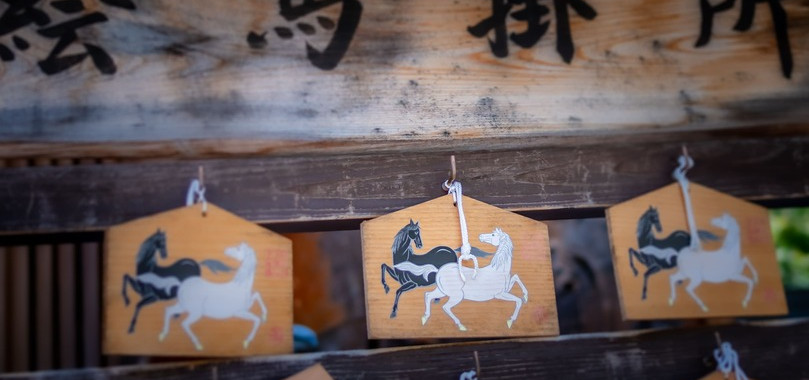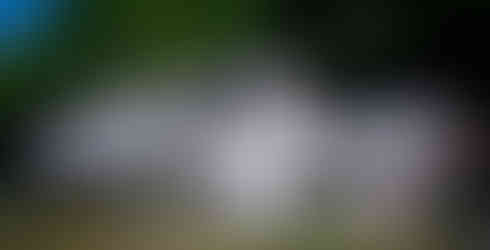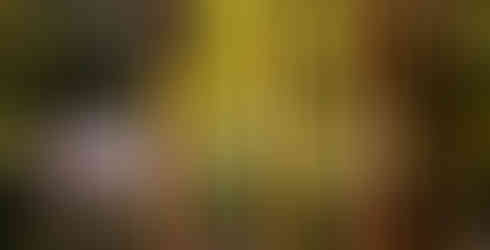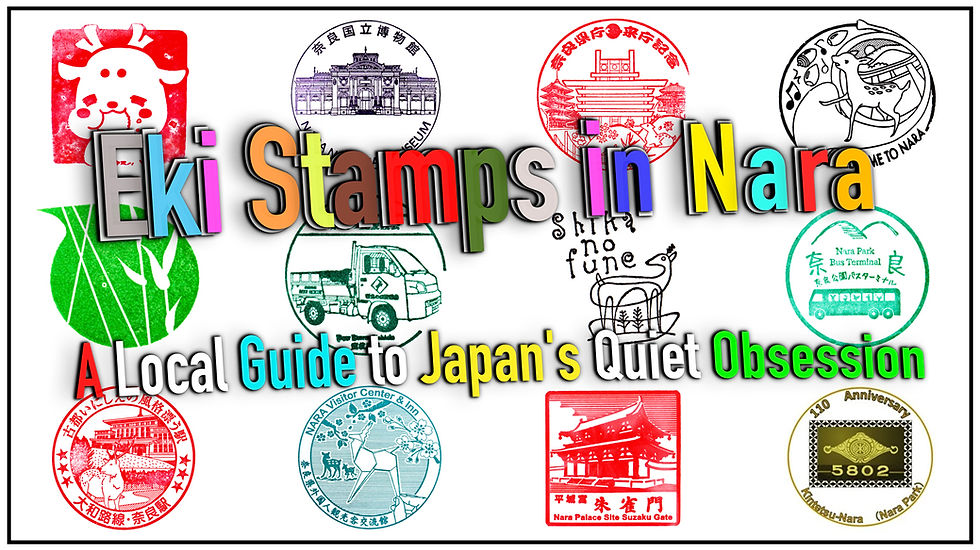Exploring the Pure Waters of Yoshino-gun Part 1: Kawakami Village
- NARA Visitor Center & Inn

- Dec 6, 2022
- 7 min read
Updated: Oct 11, 2024
As you may know, the vast majority of Nara Prefecture is mountainous. In fact, Nara ranks 43rd amongst the 47 prefectures in Japan for having the lowest percentage of inhabitable land at just 23%. Because of this, the people of Nara have always had an acute awareness of mother nature
and a deep reverence for the natural world.

Nowhere is this more evident than in Yoshino and the areas that surround it. Japan's foundations as a state were based on farming and the Yoshino area where forestry underscored the local economy. For this reason, water was revered on par with the sun, as were deities that controlled the rain. This reverence has remained unchanged since ancient times.
So with that in mind, let's take a closer look at some of the history and attractions associated with the Yoshino River, running primarily through four areas; Oyodo Town, Higashi-Yoshino Village, Yoshino Town and Kawakami Village.
Part one starts with Kawakami Village. As you can see from the map, with an area of 269.26 km², Kawakami Village is pretty big, roughly the same size as Edinburgh. However, the village is home to less than 1,500 people.
The Yoshino and Kinokawa rivers begin in Kawakami and the local people have made it their mission to protect them and create an environment where rivers, forests and people can coexist.
Kawakami is an extremely picturesque village, blessed with abundant nature and some of the most beautiful stretches of the Yoshino river.
Restaurant Yamabuki in Hotel Suginoyu
(レストラン山吹 ホテル杉の湯)【LUNCH】
Embarking on any endeavor on an empty stomach is never a good idea, so we started our day at Restaurant Yamabuki. Yamabuki is a restaurant on the first floor of Hotel Suginoyu, which is adjacent to the village office and roadside rest area in Kawakami Village. You can relax and enjoy your meal in a bright, pure Japanese-style restaurant that makes use of plenty of gorgeous Yoshino cedar. The menu includes local set meals of amago salmon tempura, karage fried chicken, sashimi, chagayu porridge ad even wild boar.

The restaurant is rather spacious, able to accommodate multiple parties at once and the large floor-length windows across the far side of the restaurant provide amazing views of the valley.
Address: 695 Sako, Kawakami, Yoshino District, Nara
Tel: 0746-52-0006
Hours: 11:00am – 2:30pm (L.O. 2:00pm) every day
Right next to Hotel Suginoyu, sharing the same car park, is
Roadside Rest Area Suginoyu Kawakami
(道の駅 杉の湯川上)
The roadside rest area Suginoyu Kawakami is a base for sightseeing in Kawakami Village, integrating Yumori Onsen and Hotel Suginoyu and of course the above mentioned Yamabuki. Local specialties such as Yoshino kudzu and Kakinoha Zushi (sushi wrapped in a persimmon leaf), as well as handicrafts and wooden products made by artists living in the village, are all on sale inside. At noon, a sizable line of people gather at the side of the shop for the self-service "noodle corner."
The udon and soba dishes are a big favorite due to their delicious dashi stock.
Access:
Address: 695 Sako, Kawakami, Yoshino District, Nara
Tel: 0746-52-0006 (Hotel Sugino-yu)
Hours: 9:00am – 5:00pm everyday (Jan.1st: 10:00am – 4:00pm)
Niukawakami Upper Shrine
(丹生川上神社上社)
In the southern part of Nara Prefecture, there are in fact three shrines with the moniker "Niukawakami." There is the middle, upper and lower Niukawakami Shrines, all located quite a distance from one another but intrinsically linked in their deep historical importance to the nation, with their purpose being to pray for favorable weather.
The Niukawakami middle shrine is registered as simply "Niukawakami Shrine", whereas the other two shrines are referred to as "upper" and "lower."
Niukawakami Shrine Upper enshrines Takaokami-no-Okami, a Shinto dragon god said to control water and rain. A long time ago, during periods of drought, villagers would present a black horse to the dragon in hope that he would make it rain, and conversely, they would present a white horse for him to stop it.
This is said to be the origin of the votive plaques with a picture of the two horses on them which you see hanging in the shrine.

It is also famous for the more than 10 sekibo (stone phallic rods) of about 30 cm in length, thought to have been part of a ritual site from the Jomon period (circa 2000 BC). The shrine is known to have been a key ritual site from the second half of the Nara period to the first half of the Heian period, making it a highly historically valuable shrine.
Access:
Address: 869-1 Sako, Kawakami, Yoshino District, Nara
Tel: 0746-52-0733
Hours: N/A
Genryukan: The Forest and Riverhead Museum
(森と水の源流館)
The Forest and Riverhead Museum is a place where people of all ages can experience and learn about the "beauty, enjoyment, and wonder" of nature, centered around the forests that nurture the "water" that is essential to our lives.
At the center of the facility is the Riverhead Forest Theatre, an impressive space that has a huge diorama of the forest at the back and high-placed panoramic movie screens at the front. Here they show a 15 minute long video covering a day in the life of the forest and an overview of the seasons. It's an immersive experience full of amazing footage and mesmeric 3D soundscapes.

There is also a large aquarium where you can meet the creatures that live in and around the rivers and a hands-on program, designed for young learners, where you can play and learn about the value of nature and its protection.
Their open library is full of books and research materials about forests and water and next to the theatre there is a replica of a house from the Edo period complete with an open hearth and genuine tools from the era. You can learn about traditional children's games, customs and listen to folk stories read by local people.
The Genryukan Forest and Riverhead Museum is not just a stylish, modern-day center for learning and environmental protection, it's a true celebration of the local people and their culture.
Access:
Address: 590-2 Sako, Kawakami, Yoshino District, Nara
Tel: 0746-52-0888
Hours: 9:00am – 5:00pm
Closed: Wednesday
Otaki Dam
(大滝ダム)
Otaki Dam is a 100m concrete gravity dam used for flood control, water supply, irrigation and power production. The catchment area of the dam is 258 km2. The dam impounds about 251 hectares of land when full and can store 84,000 thousand cubic meters of water. The construction of the dam was started in 1962 and completed in 2012.
For just 1 day during the summer, the dam offers a special tour where visitors can get access to places usually off limits. The tour is extremely popular with competition for places fierce.
Check out their live webcam here.
Access:
Address: 1051 Otaki, Kawakami, Yoshino District, Nara
Tel: 0746-53-2372
Hours: 9:30am – 4:30pm (Enter by 4:00pm)
Closed: Wednesday, December 21st – the end of February
Nakai Valley Nature School
(中井渓谷自然塾)
At Nakai Valley Nature School, you can enjoy full-scale mountain stream fishing in pristine waters surrounded by abundant nature. You can try your hand at catching amago salmon. The activities are perfect for families with young children. After crossing a small stream over a cute yellow bridge, access to the facility is via a tiny country road that passes a small mountain shrine.
The whole area makes you feel like you are on a fantasy movie set.
Next to the BBQ area, there are corresponding fishing pools in which amago salmon are released at a cost of ¥4,000 per kilogram. Young kids have a blast trying to catch the agile little fish in nets. You can then immediately grill your catch and enjoy eating in the wilderness.
There is a charge for using the BBQ facilities, but guests are free to bring all the food and drink they like. Behind the office, there's also a large dining area and a fully equipped kitchen.
The amago salmon are cultivated at Kinki University and are stored in huge pools next to the fishing and BBQ area. This would make for a truly wonderful afternoon for the whole family, but as you would imagine, there is no public transportation to this area, so we would recommend going by car or bicycle.
It really is a stunningly beautiful place. As you breath in the clean countryside air and take in the gorgeous surrounding, the trials and tribulations of modern-day life just simply melt away.
We will be going back next summer to enjoy a proper BBQ.
Access:
Address: Unogawa, Kawakami, Yoshino District, Nara 639-3541
Tel: 0746-53-2441
Hours: 8:00am – 4:00pm
Closed: January 1st
Fees:
[Grabbing Amago salmon (releasing 1kg)] ¥4,000
[Fishing Amago salmon (releasing 1kg)] ¥4,000
[BBQ] ¥7,000 per site *Guests can bring their own food
Otaki Chaya
(大滝茶屋)
Kakinoha Zushi (sushi wrapped in a persimmon leaf) is a common local dish in Nara and Otaki Chaya was the first ever shop to sell it.
The mackerel for Kakinoha Zushi is marinated with vinegar which gives it a delicate sweetness, but in Kawakami Village, they do things a little differently. In Kawakami Village, mackerel is not marinated with vinegar, but with salt. Putting salt in the belly of the mackerel and letting it sit for about 3 weeks will cause the fish to lose just the right amount of fat and that tell-tale fishy odor. What's left is a perfectly balanced delicious piece of mackerel.

The 1st floor of Otaki Chaya serves more like a take-away shop with the upstairs being the restaurant space. On the 2nd floor there are two sets of dining table and chairs and a large raised tatami mat area. The windows overlook a stunning part of the Yoshino river and you'll often see kids and teenagers frolicking about in it during the summer.
Kawakami Village's Kakinoha Zushi is well known in many parts of the Kansai region and is often bought as a souvenir. Made true to the old-fashioned way without adding any preservatives or additives, you'll be sure to love it too!
Access:
Address: 420-1 Otaki, Kawakami, Yoshino District, Nara
Tel: 0746-53-2350
Hours: 9:00am – 5:00pm
Closed: Wednesday, Winter (From the beginning of December till the middle of March)
Check out Part 2 here
Here's an overview map of the sites we visited along the Yoshino river in Kawakami Village.
Author: NARA Visitor Center & Inn


















































































Comments